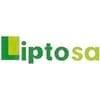
Content sponsored by:
LIPTOSA
Heat Stress in monogastrics
Published: June 23, 2022
Source : Ignacio López, Veterinarian

WHAT IS HEAT STRESS?
It is a combination of metabolic and environmental factors that forces animals to undergo physiological, metabolic and behavioral adaptations to maintain body temperature within normal limits and in a sustained mode.
Heat stress occurs when the limits of the environmental comfort zone are exceeded. This happens when the combination of temperature, humidity, and air speed triggers the animal's thermal regulation mechanisms.
Poultry and swine are particularly sensitive to the heat effects due to their inability to compensate temperature changes by sweating. Genetic selection has been associated with an increase in the metabolic rate in the main production lines.
Heat regulation in poultry and pigs happens by the mechanisms of convection, conduction, radiation, evaporation (panting) and excretion.
The thermoneutral zone in swine can fluctuate between 18 °C and 24 °C.
Figure 1. Classification of the effects of temperature and relative humidity according to the negative impact of heat stress (alert, danger and emergency) for fattening pigs (Iowa State University).

How doesit affect the animal?
Heat stress has a several impact on production rates. In pigs, there is a clear effect in feed conversion and carcass quality with heat stress. In reproduction, the losses are shown in a longer weaning-estrus period, a decrease in the number of born alive piglets and in a lower weight at birth and weaning.
The relationship between heat stress and the incidence of enteric and respiratory problems has also been described. Heat stress generates changes in the intestinal barrier, which increases permeability to endotoxins, leading in local or systemic damage, and/or increasing the inflammatory response. Under stress conditions blood is redirected to the periphery tissues reducing the intestinal blood flow which slows down the digestive activity and could affect the intestinal integrity (Liu et al., 2016). Additionally, in poultry, a decreased of the immune response has been proven in animals under heat stress.
In poultry, heat stress affects egg production in both quantity and quality. In this way, egg size and laying percentage are related to eggshell quality problems when the hens are subjected to adverse temperature and humidity conditions. In this regard, alterations in egg size and egg quantity have been related to eggshell problems when hens are subjected to adverse temperature and humidity conditions. Heat stress has been shown as reason of lower production (-13% to -57%), worse feed conversion (+31.6% to +36.4%), reduced egg weight (-3.24% to -3.41%), poor eggshell thickness (-1.2%), eggshell weight (-9.93%) and eggshell percentage (-0.66%) (Ebeid et al., 2012; Star et al., 2009). In case of broilers, Sohail was able to demonstrate the negative impact between heat stress and feed conversion (+25.6%) and weight gain (-32.6%) in broilers.
Table 1 shows the main effects in animal response (poultry) according to temperature ranges. It is also important to control the humidity and the speed ventilation, considering factors such animal density and ventilation system.

Table 1. Effect of different temperature ranges on birds.
What tools does Liptosa offer to prevent heat stress?
The management of environmental conditions is essential for a good control of heat stress. However, there are environmental conditions that cannot be avoided at an economical cost. In these cases, feeding management can be a useful tool to prevent or minimize the negative incidence of heat stress. Feeding with a diet adjusted in protein and optimized in amino acids (ideal protein), limiting carbohydrate content to reduce metabolic heat production, and increasing the energy density of the diet are usual recommendations for all species. Managing the feeding time, avoiding the hottest hours of the day, can be helpful in extreme heat conditions.
The use of phytobiotics and nutraceuticals from the HYGEN PRO line can prevent secondary bacterial incidence, feed the intestinal mucosa, and modulate the microbiota, reducing the adverse effects of heat stress.
A key point is to provide water of good quality, in terms of organoleptic (around 20°C), bromatological and microbiological parameters, and of course in enough quantity. The inclusion of electrolytes- HIDRALIP - and essential vitamins: LIPTOSAFE and/or LIPTOAMINOVIT is very helpful once heat stress has been established. Acidification of the drinking water is an ideal recommendation to prevent secondary infections and to promote the nutrition of the intestinal mucosa under heat stress conditions: LIPTOBAC and LIPTODAL lines of LIPTOSA acidifiers.
HYGEN PRO RESPIRFRESH (liquid or powder) and IBOOSTER are nutraceutical blends specifically designed to be used for the control and prevention of heat stress in monogastric animals.
Hygen Pro RespirFresh is a combination of plant derivates with bronchodilator, expectorant, and anti-inflammatory activity that, together with salicylates, helps to improve breathing, animal welfare, body temperature control and respiratory problems.
HYGEN PRO RESPIRFRESH improves drinking water and feed intake in periods of heat stress. Its compounds also have beneficial effects on the intestinal tract.
IBOOSTER is a nutraceutical of phytobiotic activity that combines ingredients with immunomodulatory and anti-inflammatory properties for the gut and liver. Ibooster helps in the prevention of non-specific chronic inflammation in the digestive tract. It also contributes to reduce the risk of common diseases associated with heat stress, such ileitis, clostridiosis, etc.
IBOOSTER has demonstrated an immunostimulant effect on humoral, enzymatic, and cellular response. Ibooster improves hepatic health, showing an increase of detoxifying and antioxidant enzymes and reducing the inflammatory hepatic enzymes under heat stress situation.
*Certain information associated with products, their composition and claims may be different depending on the geographical region and may not be applicable in all countries. Liptosa reserves the right to adapt to the requirements and legislation in each case.
The information and technical recommendations provided herein are based on Liptosa's current knowledge and experience.
Liptosa reserves the right to update the information and arguments contained in this platform, as well as to make any changes to this information or recommendation at any time, without prior or subsequent notice.
Related topics:
Authors:

Influencers who recommended :
Arança Castellón, Carlos López ToméRecommend
Comment
Share

Would you like to discuss another topic? Create a new post to engage with experts in the community.


